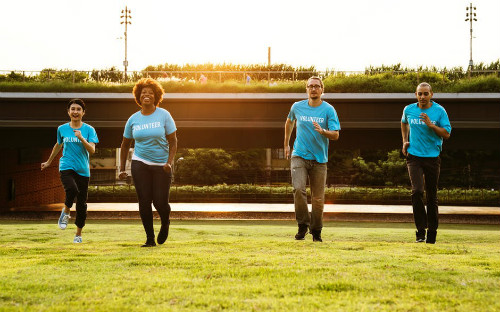Two academics have completed an Erasmus + Sport project promoting equality and social inclusion through sports and games initiatives for children in disadvantaged communities.
Dr Eleni Theodoraki and Professor Maura Sheehan’s research focused on encouraging participation among children from three EU member states: the UK, Romania and Sweden.
Locally, the researchers partnered with Tom Buik, chair of the St Angela’s Participation Centre (SAPC), which provides free sport, embraces diversity and improves the lives of young people and their families in and around Darnley and Greater Pollok in Glasgow.
While children in all the study countries’ communities were enthusiastic about participating in sport, they often faced significant barriers to participation.
These included travelling safely to venues, chaotic home lives, insufficient resources to buy clothing and lack of equipment in leisure facilities.
The research found that a combination of committed parents, trained community volunteers and, critically, teachers who champion the importance of sport for development and mental health were found to be pivotal to sustaining participation.

Due to forced ‘volunteering’ during the Communist period in Romania, it proved very difficult to encourage sustained volunteering among key stakeholders. In contrast, such volunteering is deeply embedded in Swedish culture and supported by significant Government resources.
The research also examined how private sector companies viewed supporting sport for children in disadvantaged areas as part of their Corporate Social Responsibility (CSR) programmes.
In the UK, most companies surveyed acknowledged that supporting such initiatives was indeed an integral part of their CRS initiatives, while in Sweden the majority generally felt supporting such activities was the role of the state and parents.
Very few companies in Romania viewed such activities as part of CSR. Support for survivors of the brutal orphanages and improving the welfare of Romania’s significant homeless pet population were viewed to be much more appropriate vehicles for CSR activities.
This project has contributed to Prof Sheehan’s current research on the links between companies’ CSR commitments, employees’ psychological contracts and the subsequent links to companies’ financial performance across several EU countries.
She said: “The Erasmus + Sport project adds to growing evidence that CSR should not be viewed as universally ‘good’, but rather the potential benefits of CSR for both employers and employees are very much contingent on the complex and critical roles of culture, history and government.”